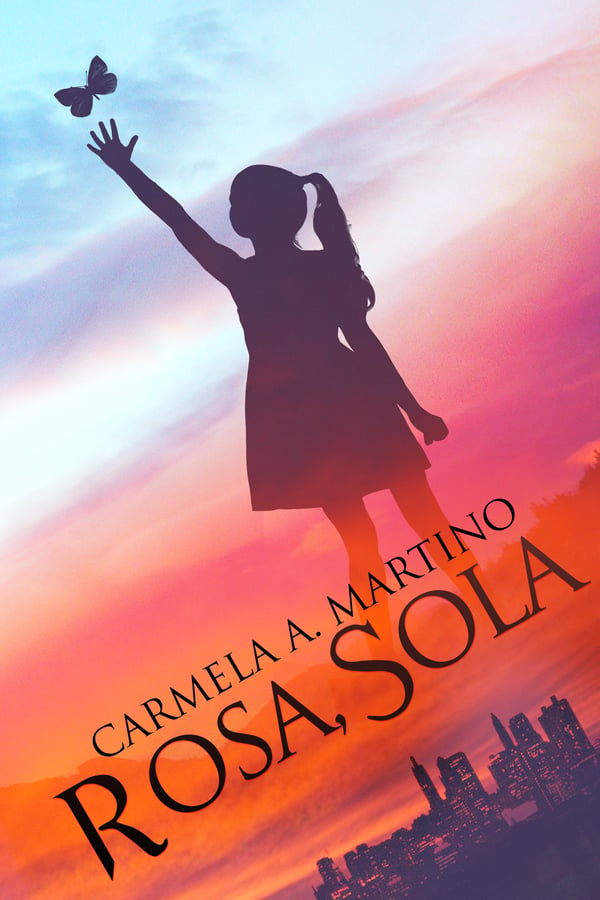Carmela Martino deftly handles the sensitive topic of infant loss in Rosa, Sola, a book for children ages 10 and up.
Rosa wants nothing more than a baby brother of her own. But this is more than simple envy over her best friend's new baby brother. Rosa is an only child, and in 1960s Chicago, that's a rarity--and she feels like an outsider among all her friends with their large families. Rosa's wish comes true, but she blames herself for the tragic events that follow.
It's easy to forget, or overlook, the impact that the death of an unborn or newborn sibling can have on other children in a family. Rosa, Sola explores all the raw emotions that go along with a family tragedy--in a manner that is merciful, not gratuitous.
Parents will appreciate the classroom discussion guide at the end of the book; it's also available on the author's website.
[Tweet "Review of children's book about #infantloss and works of #mercy by @franciscanmom"]
As I read this very touching novel, I couldn't help but consider the Year-of-Mercy implications it contains. Rosa, Sola is all about how the Corporal and Spiritual Works of Mercy can be given and received. With that in mind, I asked author Carmela Martino to discuss this topic from her own point of view and that of a few of the characters.
Carmela, this book deals with the sensitive topic of infant loss as seen through the eyes of an older sibling. How do you recommend that parents handle the discussion of this topic with their children?
The original publisher, Candlewick Press, designated Rosa, Sola for ages 8-12. When I speak to parents, I tell them that it’s aimed at ages 9 and up, but add that it does deal with death. My first recommendation is for parents to read the novel themselves before deciding whether it’s appropriate for their child, especially if the child is under age 10. (The book’s a quick read.) I am not a therapist or an expert on the topic of grief, but I am a parent, as well as an aunt to many nieces and nephews, and I’ve seen how unique a child’s reaction to a book can be, no matter the subject. Teen readers have responded more enthusiastically to Rosa, Sola than I expected. One Chicago-area Catholic school added the novel to their sixth-grade curriculum and it led to terrific discussions. At the other end of the spectrum, I was stunned to read a review of Rosa, Sola written by a seven-year-old. I don’t believe my son would have handled the book well at that age. Yet this seven-year-old wrote an amazing review, admitting that Rosa, Sola “was a very sad book and it made me cry,” but also writing about how Rosa’s family “solves problems together and helps together.” The seven-year-old ended the review by saying “I learned that when someone cries about a book it’s a very good book!”
So perhaps a good place for parents to start a discussion of Rosa, Sola would be by having their child write a book review, or by talking about what points the child would include in a review. This could provide insights into which parts of the book made the greatest impression and lead into a discussion of what the book is really about. Parents may be surprised, as I have been, to find how well children pick up on the novel’s deeper themes. In my opinion, Rosa, Sola isn’t so much about death as it is about how love—God’s love and the love of family and friends—can help us through our darkest moments. Father Kevin Shanley, O. Carm., summarized the novel beautifully in his review of the original hardcover edition: “Challenged by the loss of her brother but ultimately bolstered by hope, young Rosa comes to the great understanding that she is never alone, and that love and kinship are often found in the most unexpected places—right in the middle of life itself.”
By the way, parents will find a “Discussion Questions” section in the back of the new edition of Rosa, Sola. For those with the original hardcover edition, the same discussion questions are available on my website.
Let's talk with a few of the characters about how they gave and received the works of mercy.
Rosa, what do you wish your friends would have said or done for you when you were feeling bad about your baby brother's death?
I know you’re supposed to say “I’m sorry” when someone dies, but when my best friend AnnaMaria said that to me, all I could think of was how she had a baby brother and I didn’t. That made me cry, and then I felt embarrassed for crying in front of everyone. I think maybe it would have been better if she’d made me a card and mailed it to my house instead, the way Ma had me do for AnnaMaria when her grandpa died. That way, if the card made me cry, no one would see.
But what I really wish is that my friends would treat me the same as before and not be afraid to talk to me or play with me. I know at first I wanted to be left alone, and I’m glad they didn’t bother me then. But later, when I wanted to be around them again, my friends stayed away from me at lunch and recess. I guess they were afraid of making me cry again. I’m so glad we had the spelling bee! After that, everything went back to normal and I didn’t feel strange or different anymore, even though inside I was still sad.
Rosa, what would you have changed about the way your parents and Aunt Ida handled the subject around you?
First thing, I would have had Papa or Uncle Sal tell me the bad news. I didn’t really like Aunt Ida back then, so it made me extra sad when she was the one who told me. She tried to make me feel better, but she didn’t know how to hold me the way Ma did. Then later, I would have had Papa be home more and not spend so much time at the hospital, and for Papa not to ignore me the way he did when he was home. I would have had him talk to me more, and tell me everything was going to be okay. That Ma would be okay. That our family would be okay.
I just thought of something. Maybe Papa didn’t want to cry in front of me, just like I didn’t want to cry in front of my friends. But I think it would have been good if Papa did cry. Uncle Sal had told me it was okay to cry, and after I did, I felt a little better. I think Papa and me crying together would have helped both of us feel better.
Aunt Ida, what was the hardest part about caring for Rosa while Ma was in the hospital?
Oh, those days were so very terrible. I was afraid Francesca might die and leave Rosa motherless. I grew up without a mother and I feared Rosa might have to suffer in the same way. During those terrible days, I tried my best to make Rosa feel safe, to protect her from worry. But what did I know of mothering? I have no memory of my mother and I never had any children of my own. I think the hardest part was hiding how afraid I really was. I had to be strong for Rosa’s sake, even if she thought I was being cruel. Better Rosa hate me than she should worry about her mama, no?
Mrs. Graziano, as a neighbor and family friend, what was the best thing you were able to do for Rosa or her family?
The best thing? I’m not sure. I tried to be there for whatever help the family needed. They needed someone to care for Rosa before and after school—I was there. They needed food to eat—I cooked. Rosa needed someone to tell her worries to—I let her talk. I tried not to ask too many questions. I didn’t want to be nosy. But when Rosa talked, I listened. Not with just my ears. Con il mio cuore—with my heart. Rosa’s words reminded me of some hard, scary times in my own family. So I told Rosa about those times, and about how everything was okay in the end. Maybe, then, the best thing I did was give Rosa hope that everything would be okay for her family, too.
About the author: Carmela Martino (www.carmelamartino.com) is a freelance writer, children’s author, and writing teacher. Her acclaimed children’s novel, Rosa, Sola, which was inspired by her experiences growing up in an Italian-American family, received the Catholic Writer’s Guild Seal of Approval and was named a Booklist Top Ten First Novel for Youth. Carmela’s articles have appeared in the Chicago Tribune, Catholic Parent, New Catholic Explorer, and numerous other publications. She blogs about writing and teaching at TeachingAuthors.com (www.teachingauthors.com).
Buy this book through our Amazon link and support CatholicMom.com with your purchase!
Be sure to check out our Book Notes archive.
Copyright 2016 Barb Szyszkiewicz, OFS
About the Author

Barb Szyszkiewicz
Barb Szyszkiewicz, senior editor at CatholicMom.com, is a wife, mom of 3 young adults, and a Secular Franciscan. Barb enjoys writing, cooking, and reading, and is a music minister at her parish. Find her blog at FranciscanMom and her family’s favorite recipes with nutrition information at Cook and Count. Barb is the author of The Handy Little Guide to Prayer and The Handy Little Guide to the Liturgy of the Hours, available from Our Sunday Visitor.




.png?width=1806&height=731&name=CatholicMom_hcfm_logo1_pos_871c_2728c%20(002).png)
Comments